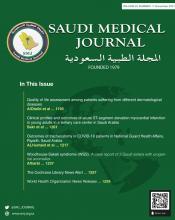19 October 2021 - COVID-19 has had a wide-ranging impact on all areas of society, leading to setbacks in health gains and efforts to achieve universal health coverage (UHC). The diversion of health system resources to address COVID-19 care led to a protracted disruption of essential health services. New barriers to accessing health care, such as restricted movements, reduced ability to pay and fear of infection, have posed additional and unprecedented challenges in many countries.
The world has not learned from previous epidemics. Reacting to events as they occur, without adequately strengthening prevention and preparedness, meant that countries were caught unprepared for a pandemic of this speed and scale. COVID-19 has hit vulnerable populations particularly hard and exacerbated preexisting inequalities even further. This highlights the need for countries to take every opportunity to rebuild their health systems sustainably, more equitably and closer to communities.
“The pandemic has been a significant setback in our efforts to support Member States to progress towards universal health coverage,” said WHO Director-General Dr Tedros Adhanom Ghebreyesus. “We cannot build a safer world from the top down; we must build from the ground up. Preparing for, preventing, detecting and responding rapidly to epidemics starts with strong primary health care and public health systems, skilled health workers, and communities empowered and enabled to take charge of their own health. That must be the focus of our attention, and our investment.”
WHO has released a position paper on building health systems resilience towards UHC and health security during COVID-19 and beyond to reinforce the urgent need for renewed and heightened national and global commitment to make countries better prepared and health systems resilient against all forms of public health threats for sustained progress towards both UHC and health security. This requires an integrated approach to building and rebuilding health systems that serve the needs of the population, before, during and after public health emergencies. It encompasses capacities for essential public health functions that improve, promote, protect and restore the health of all people; building strong primary health care as a foundation for bringing health services closer to communities; all-hazards emergency risk management that strengthens the ability of countries to prevent and tackle health emergencies, and can surge to meet the additional health security demands imposed by health emergencies; engaging the whole-of-society so that all sectors work together towards a common goal of health for all.
These efforts will also help bolster the implementation of the International Health Regulations (2005) and accelerate the achievement of the health-related Sustainable Development Goals.
The WHO position paper comes at a crucial time to provide leaders and policymakers with recommendations on positioning health within the wider discussions on socioeconomic recovery and transformation.
In brief: WHO’s 7 policy recommendations on building resilient health systems based on primary health care
Leverage the current response to strengthen both pandemic preparedness and health systems
Invest in essential public health functions including those needed for all-hazards emergency risk management
Build a strong primary health care foundation
Invest in institutionalized mechanisms for whole-of-society engagement
Create and promote enabling environments for research, innovation and learning
Increase domestic and global investment in health system foundations and all-hazards emergency risk management
Address pre-existing inequities and the disproportionate impact of COVID-19 on marginalized and vulnerable populations
Available from: https://www.who.int/news/item/19-10-2021-who-s-7-policy-recommendations-on-building-resilient-health-systems
- Copyright: © Saudi Medical Journal
This is an Open Access journal and articles published are distributed under the terms of the Creative Commons Attribution-NonCommercial License (CC BY-NC). Readers may copy, distribute, and display the work for non-commercial purposes with the proper citation of the original work.






